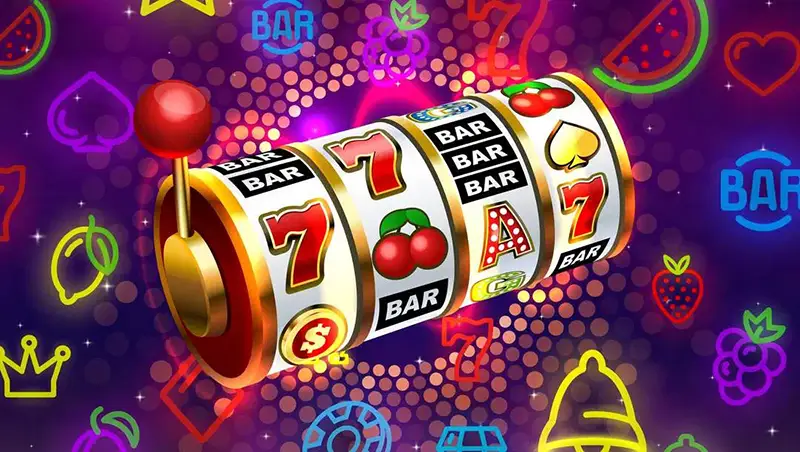Behind the bright animation and sound effects of online slots hides a complex mathematical model that ensures the fairness and randomness of each spin. Modern virtual machines – the result of painstaking work of developers who create multi-level algorithms that guarantee the independence of each spin. Transparency and fairness of the gaming process are ensured thanks to the constant improvement of algorithms and independent certification that excludes any manipulation.

Part of the audience believes that the digital reels react to external factors: the time of the session, the number of bets made or the amount on the account. The technical specification refutes such speculations: the algorithm does not “remember” past spins, and the complex code uses random generation. Special laboratories conduct tests on a thousand spins to make sure that the drums function correctly and maintain the average return percentage.
How slots work at online casinos
 Engineers of development companies customise the software so that prize lines are formed unpredictably. High budgets are spent to protect the code from hacking, as unlicensed counterfeiting threatens large fines. Algorithms take into account the peculiarities of the interface, the rate of return (RTP) and a wide range of possible combinations. This approach turns the mechanical rotation of symbols into a complex mechanism related to the probability of winning and additional features (bonus rounds, wild symbols).
Engineers of development companies customise the software so that prize lines are formed unpredictably. High budgets are spent to protect the code from hacking, as unlicensed counterfeiting threatens large fines. Algorithms take into account the peculiarities of the interface, the rate of return (RTP) and a wide range of possible combinations. This approach turns the mechanical rotation of symbols into a complex mechanism related to the probability of winning and additional features (bonus rounds, wild symbols).

The chance to catch a valuable symbol is not fixed to specific moments. Some players assume that after a long streak of failures, the reels are obliged to “give” the winnings. In reality, the system does not analyse previous results and each spin starts from scratch. The complexity of this concept becomes clearer when you look at the random number generator (RNG) in slots, which generates a chain of pseudo-random values. Each number is matched against a list of symbols, and the matches determine the final combination.
The role of pseudo-random numbers
How do online slots work? The number generated by the HSC goes through a mathematical function that creates a huge field of variations. Such equations exclude repetition of the same sequence, so confidence in the integrity of the system is increased. Large corporations lose their licence if experts detect tampering with the code or tampering with the numbers.
Special symbols and return percentages
Additional elements (Wild, Scatter) and high RTP entice thrill seekers. The device of online slots is complemented by bonus rounds or free spins, where several matching symbols create a chain of prize lines. According to statistics, the average RTP varies from 92% to 97%, but this value reflects only long-term returns. A quick win after a couple of spins is due to exceptional randomness, not a growing “debt” on the part of the machine.
Formulas, logic and myths – how slots work at online casinos
Digital software relies on a prescribed code, where every point is subject to verification by independent auditors. At the same time, the high dynamics of the gameplay creates a lot of misconceptions. Some people think that the time of day or bet size affect the prize frequency, while the main parameters are strictly regulated. The formulas take into account payout percentage, variance and number of reels, and additional functions are triggered when the specified combinations occur. This makes for a spectacular experience, but the result is not dependent on previous spins.
Familiarity with the digital recipe for winnings
The algorithm of online slots controls several phases: receiving a pseudo-random number, matching with the payout table and triggering bonus mechanisms. High-dispersion machines bring rare but impressive winnings. Low-dispersion ones give frequent but small amounts. Such a balance helps to keep the interest: gambling fans choose different types of dispersion to find a comfortable speed of play.
Myths about online slots
Common rumours describe the machine’s “memory” of unsuccessful sessions or the conclusion that after several losses, a guaranteed win follows. Such perceptions are not supported by statistics. An independent audit proves that the system does not correct the results based on historical data. The list of the most typical misconceptions includes fantasies about “tweaking” in favour of the casino and manipulation of bets with a noticeable increase in the account. The facts show the opposite: the honesty of online slots is preserved if the product is licensed and inspected.
Licence verification and online slots integrity
Official regulators such as eCOGRA or iTech Labs monitor the validity of the RTP and the absence of tampering. The device of online slots undergoes a detailed analysis: checking compliance with the declared indicators and code quality. Confirmed reliability guarantees protection from external manipulation, while the licensed platform risks losing its reputation at the slightest infringement.
Conclusion
 A complex algorithm hides the magic of pure maths. Independent experts confirm that the engine is built on randomisation, and the return percentage is tested by laboratories. Recognised providers are stripped of their licence for any shenanigans, so adherence to the rules becomes the foundation of trust. Combinations are formed instantly, without reference to past results, and bonuses and special symbols only add to the vivid presentation. Such analytics forms a sensible attitude to the game: mathematics serves as a base, and fascinating plot and vivid details support interest. If it is known in advance how slots work in an online casino, conflicts with mystical speculations disappear, and any session is perceived as part of the entertainment process with clearly defined probabilities.
A complex algorithm hides the magic of pure maths. Independent experts confirm that the engine is built on randomisation, and the return percentage is tested by laboratories. Recognised providers are stripped of their licence for any shenanigans, so adherence to the rules becomes the foundation of trust. Combinations are formed instantly, without reference to past results, and bonuses and special symbols only add to the vivid presentation. Such analytics forms a sensible attitude to the game: mathematics serves as a base, and fascinating plot and vivid details support interest. If it is known in advance how slots work in an online casino, conflicts with mystical speculations disappear, and any session is perceived as part of the entertainment process with clearly defined probabilities.
 en
en  ru
ru  de
de  ar
ar  es
es  hi
hi  fr
fr  nl
nl  it
it  pt
pt  el
el 









